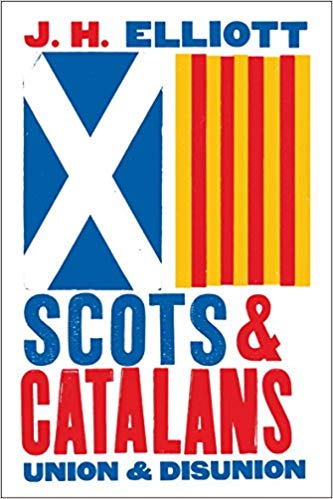Warning: Undefined array key "ssba_bar_buttons" in /usr/home/movgwifi/public_html/yesedinburghwest.info/wp-content/plugins/simple-share-buttons-adder/php/class-buttons.php on line 602
Warning: Undefined array key "ssba_bar_buttons" in /usr/home/movgwifi/public_html/yesedinburghwest.info/wp-content/plugins/simple-share-buttons-adder/php/class-buttons.php on line 602
Warning: Undefined array key "ssba_bar_buttons" in /usr/home/movgwifi/public_html/yesedinburghwest.info/wp-content/plugins/simple-share-buttons-adder/php/class-buttons.php on line 602

Reviewed by Chris Bambery in Commonspace.
A landmark account that reveals the long history behind the current Catalan and Scottish independence movements
A distinguished historian of Spain and Europe provides an account of the development of nationalist and separatist movements in contemporary Catalonia and Scotland. This first sustained comparative study uncovers the similarities and the contrasts between the Scottish and Catalan experiences across a five-hundred-year period, beginning with the royal marriages that brought about union with their more powerful neighbours, England and Castile respectively, and following the story through the centuries from the end of the Middle Ages until today’s dramatic events.
J. H. Elliott examines the political, economic, social, cultural, and emotional factors that divide Scots and Catalans from the larger nations to which their fortunes were joined. He offers new insights into the highly topical subject of the character and development of European nationalism, the nature of separatism, and the sense of grievance underlying the secessionist aspirations that led to the Scottish referendum of 2014, the Catalan referendum of October 2017, and the resulting proclamation of an independent Catalan republic.
The movements for independence in Catalonia and Scotland have, in the last decade, grown together and identify with each other. Both threaten the unity of key European states, key NATO members and allies of the USA. What unites these two movements and what is different?
There is much well delivered history of both nations here, although rather too focused on great men and women, and it is clearly a polemic against supporters of Scottish and Catalan independence, failing to understand the rise of support for independence in the immediate past, both in Scotland and Catalonia.
In neither nation is support for independence couched in terms of “blood and race.” In 2014, the debates which covered Scotland during the independence referendum concerned issues such as making an environmentally friendly country, building a modern industrial base and creating a democracy which, unlike Westminster, encouraged popular participation. In both Catalonia and Scotland the stress was on democracy. In both it was stressed that all who lived in those nations were citizens of that nation, wherever their origins (and in the case of Catalonia those who embraced the language). In both cases it contrasts with the anti-migrant, anti-Islam nationalism so obvious across Europe. Support for independence in both nations is not based on “nostalgia for a world that never was…narratives that prioritised certain sections of their past at the expense of others.” Wilfred the Hairy or even William Wallace were not key players in neither the 2017 Catalan referendum nor the 2014 Scottish one. In both cases, independence is seen as an escape pod from the UK and Spanish states which are regarded as obstructing the democratic choice of the two peoples.
The flawed transition to devolution in Spain post-Franco left too much of the old in place; politically appointed judges and instutionalised corruption being two examples, and the Spanish state has failed to come to terms with the dreadful legacy of the Civil War and the subsequent repression. Spanish nationalism is virulently exclusionist of “others,” from Muslims and Jews to Catalans. In both nations, the pro-independence movements have been keen to stress their inclusiveness towards migrant communities and ethnic groups.
In the case of Britain, he passes over the archaic nature of the British parliament, the continued domination of a public schooled, Oxbridge educated elite and the revolving door between the Treasury, the Bank of England and the City of London. In the case of Spain, how much of the elite in Franco’s Spain retained their wealth and positions, passing it on to the present generation?
Yes Edinburgh West has a website, Facebook, Twitter, National Yes Registry and a Library of topics on Scottish Politics, including Independence.



